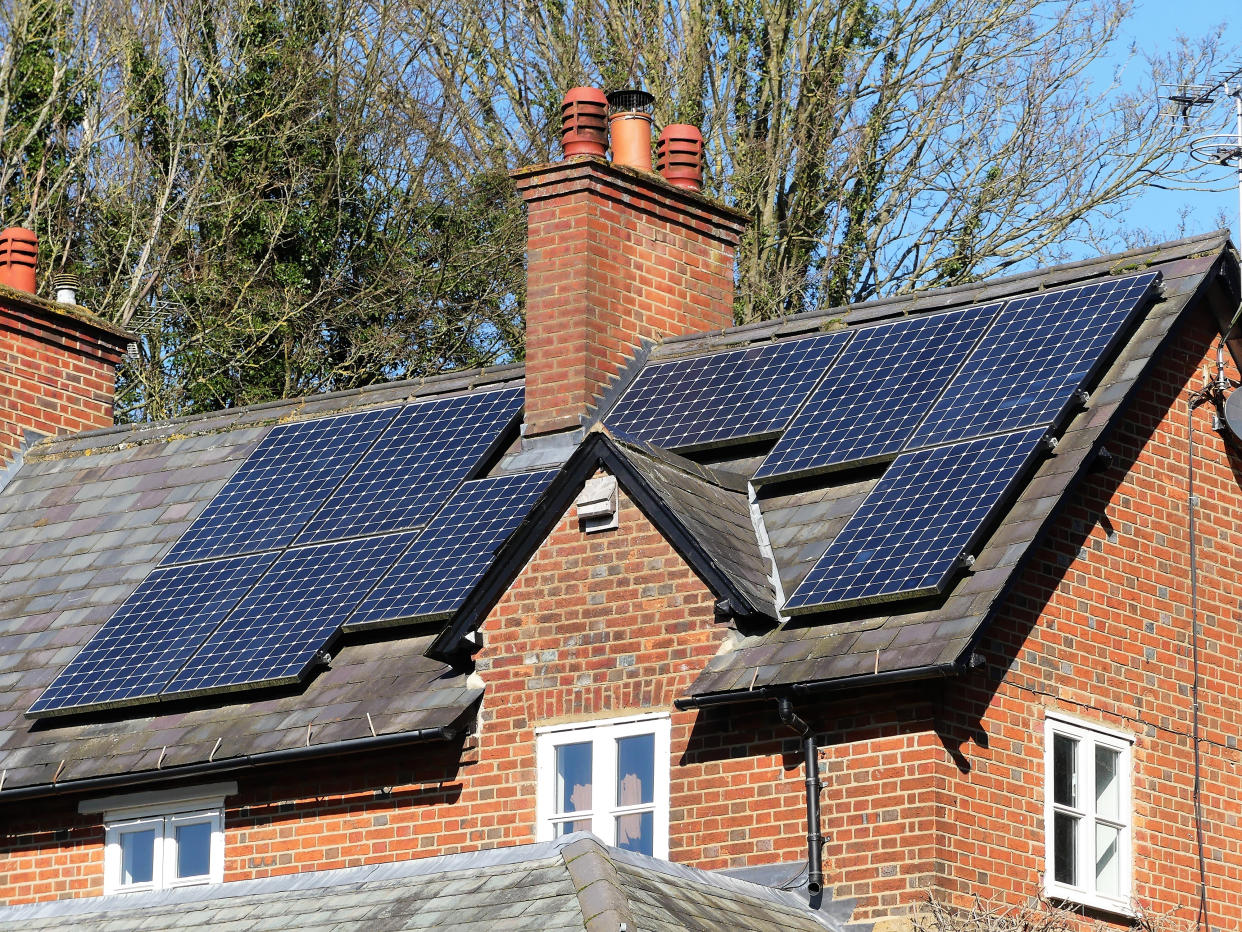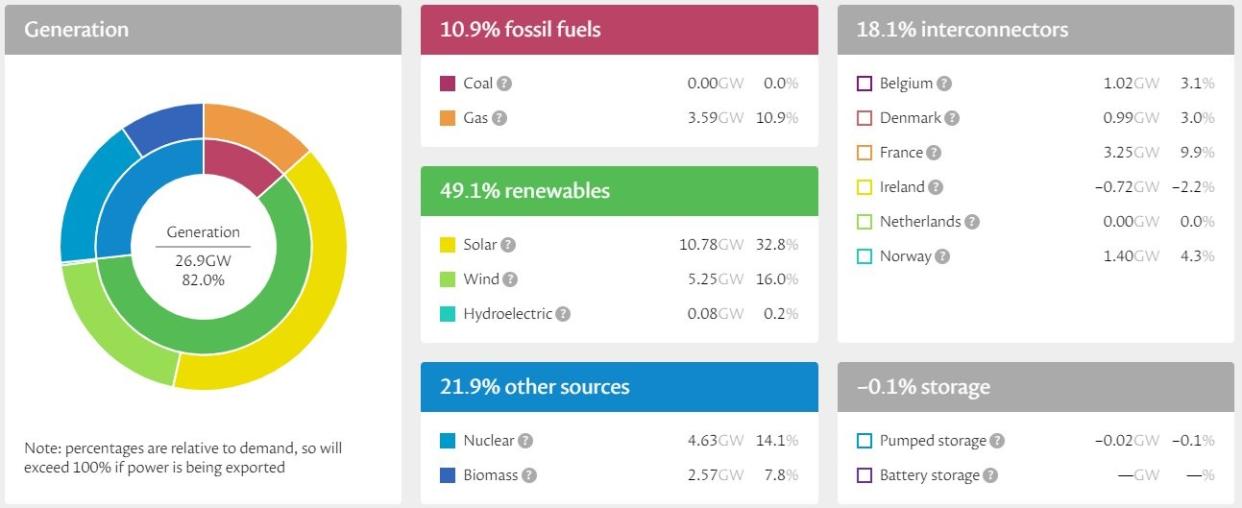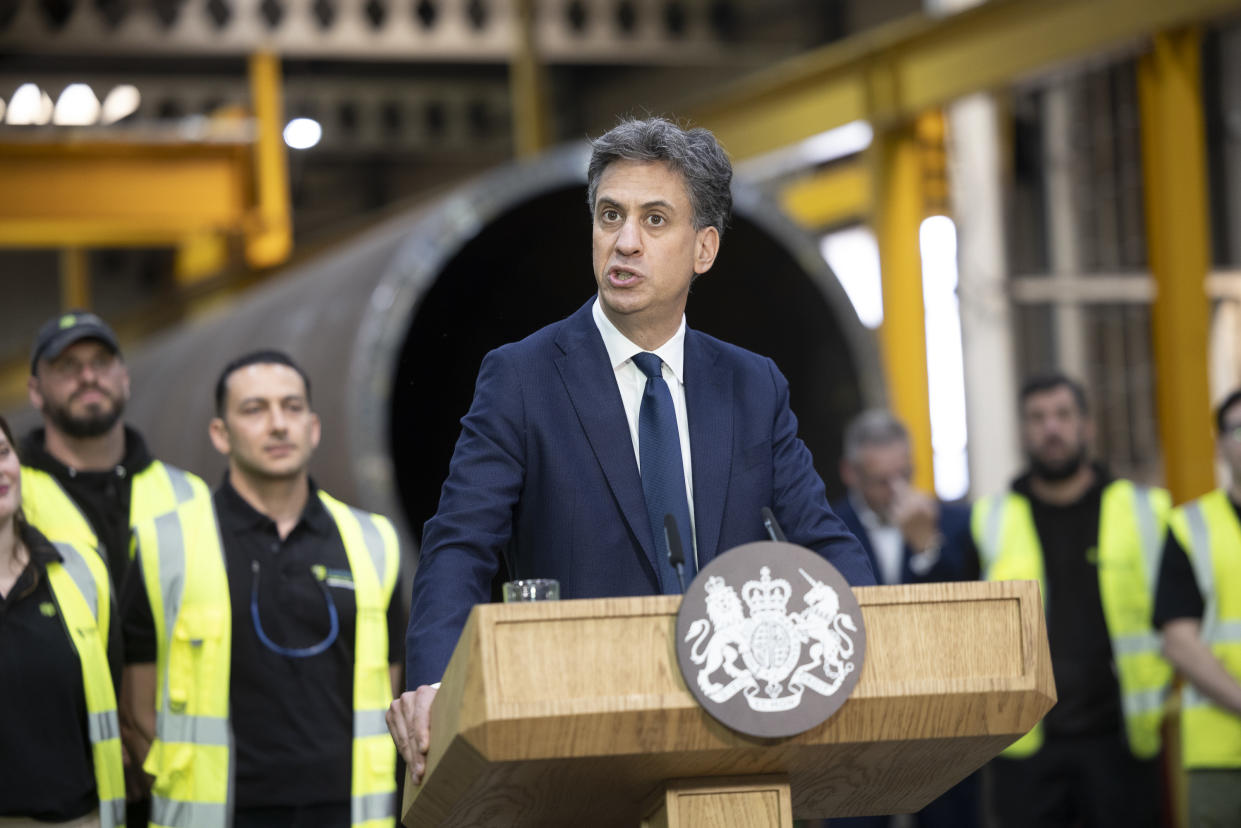How much electricity comes from the Sun on summer days in the UK?

With blazing sun across the UK, the past week has seen solar energy’s contribution to Britain’s energy mixture hit levels of up to 32% - highlighting how much the sun can contribute to the country's electricity supplies.
Each summer, the levels of solar energy in use rise, according to Christelle Barnes, vice-chair at Solar Energy UK and UK general manager at SolarEdge.
"Every year, that percentage number just gets a little bit higher. So it was typically between 25% and 27% over the last couple of years. So just seeing numbers like 30% now is definitely showing that we're continuing to deploy more solar," she told Yahoo News.
"It’s not surprising that we're seeing that number increase as solar continues to contribute when we have fantastic sunny weather."
There’s a misconception that the UK's climate isn’t suitable for solar energy but it is, in fact, very similar to Germany's, which is one of the biggest solar markets in the world, according to Barnes.
How much solar generation capacity does Britain have?
Barnes said that Britain now has up to 18.6 gigawatts of solar energy installed – and believes it is higher than official figures of 16.9GW, as the government does not track all capacity.
Renewable energy generated a record annual percentage of the UK’s electricity last year, statistics published by the Government confirmed.

The Digest of UK Energy Statistics, published by the Department for Energy Security and Net Zero (DESNZ) on Tuesday, showed the amount of UK electricity generated by wind, solar and hydro outstripped fossil fuels for the third time in four years.
Renewables’ share increased to a record 46.4% – up from 41.7% in 2022, largely due to wind and solar generation shares reaching new record highs, the annual report says.
Meanwhile, electricity generation from fossil fuels fell to a record low of 36.7% – although generation from gas remained the principal form of UK electricity generation at 34.7%.
"We see how much is being installed in the UK on a monthly basis. That’s a pretty significant amount of energy from sunlight. In the last quarter, renewables contributed half of Britain’s energy – and in the last quarter, solar reached its highest level for any recent quarter," Barnes explained.
Data from fundraising platform Spacehive suggests that the number of solar energy projects seeking funding has risen 300% in the past two years.
What’s going to happen in the future?
Proposals from the new government mean that solar energy is at a new "tipping point", according to Barnes, with Labour planning to reach 50 gigawatts of solar energy generation by 2030.
The Labour Party has promised to "take on the Nimbys" and has already greenlit three major solar projects that had been blocked by the previous Conservative government.
The party has also promised "a rooftop solar revolution" with plans to equip millions more homes with solar panels.

Energy secretary Ed Miliband said: “I want to unleash a UK solar rooftop revolution. We will encourage builders and homeowners in whatever way we can to deliver this win-win technology to millions of addresses in the UK so people can provide their own electricity, cut their bills and at the same time help fight climate change.”
A recent report from the National Engineering Policy Centre (NEPC) suggested that solar will be key to hitting 2030 energy targets, as solar installations can be rolled out rapidly.


